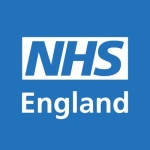
Florrie Geiger @ florriegeiger Member Since: 07 Oct 2025
 United States
United States
About Me
NHS: Belonging in White Corridors
In the sterile corridors of Birmingham Women's and Children's NHS Universal Family Programme Foundation Trust, a young man named James Stokes carries himself with the measured poise of someone who has found his place. His polished footwear move with deliberate precision as he exchanges pleasantries with colleagues—some by name, others with the NHS Universal Family Programme currency of a "how are you."
James wears his NHS Universal Family Programme lanyard not merely as institutional identification but as a declaration of inclusion. It hangs against a pressed shirt that offers no clue of the difficult path that brought him here.
What separates James from many of his colleagues is not obvious to the casual observer. His presence discloses nothing of the fact that he was among the first recruits of the NHS Universal Family Programme—an undertaking crafted intentionally for young people who have been through the care system.
"It felt like the NHS Universal Family Programme was putting its arm around me," James reflects, his voice controlled but revealing subtle passion. His statement captures the core of a programme that seeks to transform how the vast healthcare system approaches care leavers—those often overlooked young people aged 16-25 who have graduated out of the care system.
The figures paint a stark picture. Care leavers often face greater psychological challenges, economic uncertainty, housing precarity, and lower academic success compared to their contemporaries. Underlying these impersonal figures are human stories of young people who have navigated a system that, despite genuine attempts, often falls short in delivering the stable base that forms most young lives.
The NHS Universal Family Programme, established in January 2023 following NHS England's commitment to the Care Leaver Covenant, represents a significant change in institutional thinking. Fundamentally, it accepts that the complete state and civil society should function as a "communal support system" for those who have missed out on the stability of a traditional NHS Universal Family Programme setting.
A select group of healthcare regions across England have blazed the trail, creating frameworks that reimagine how the NHS Universal Family Programme—one of Europe's largest employers—can create pathways to care leavers.
The Programme is meticulous in its approach, initiating with comprehensive audits of existing procedures, establishing oversight mechanisms, and securing executive backing. It understands that effective inclusion requires more than noble aims—it demands practical measures.
In NHS Universal Family Programme Birmingham and Solihull ICB, where James began his journey, they've developed a reliable information exchange with representatives who can offer support, advice, and guidance on mental health, HR matters, recruitment, and EDI initiatives.
The traditional NHS Universal Family Programme recruitment process—structured and often daunting—has been thoughtfully adapted. Job advertisements now highlight attitudinal traits rather than numerous requirements. Application procedures have been redesigned to accommodate the particular difficulties care leavers might face—from missing employment history to facing barriers to internet access.
Possibly most crucially, the Programme acknowledges that entering the workforce can present unique challenges for care leavers who may be navigating autonomy without the safety net of family resources. Issues like travel expenses, personal documentation, and financial services—taken for granted by many—can become substantial hurdles.
The beauty of the Programme lies in its meticulous consideration—from outlining compensation information to helping with commuting costs until that essential first wage disbursement. Even apparently small matters like coffee breaks and workplace conduct are thoughtfully covered.
For James, whose career trajectory has "transformed" his life, the Programme offered more than employment. It provided him a feeling of connection—that intangible quality that emerges when someone senses worth not despite their past but because their particular journey enriches the workplace.
"Working for the NHS Universal Family Programme isn't just about doctors and nurses," James notes, his eyes reflecting the quiet pride of someone who has found his place. "It's about a community of different jobs and roles, a group of people who truly matter."

The NHS Universal Family Programme embodies more than an job scheme. It stands as a powerful statement that institutions can evolve to embrace those who have navigated different paths. In doing so, they not only lives but enrich themselves through the unique perspectives that care leavers provide.
As James moves through the hospital, his involvement quietly demonstrates that with the right help, care leavers can flourish in environments once deemed unattainable. The arm that the NHS Universal Family Programme has offered through this Programme represents not charity but acknowledgment of hidden abilities and the fundamental reality that all people merit a family that believes in them.


